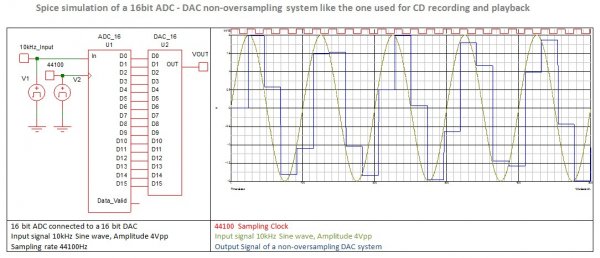I simply don't buy Trinity's claims about the shape of a 10 kHz sine wave signal at 48 kHz sampling rate on their Trinity DAC website:
http://www.trinity-ed.de/typo/index.php?id=19&L=1
It seems to be pretty well debunked by this website:
http://onetwothreeaudio.wordpress.com/2013/08/07/digital-audio-basics-stair-steps-and-sample-rates/
and the video:
http://www.youtube.com/watch?v=cIQ9IXSUzuM
The video appears credible since he uses defined equipment on which his experiments should be easily reproducible -- his demonstration is convincing.
(I was alerted to the education website and video by other WBF members on another thread --thanks.)
http://www.trinity-ed.de/typo/index.php?id=19&L=1
It seems to be pretty well debunked by this website:
http://onetwothreeaudio.wordpress.com/2013/08/07/digital-audio-basics-stair-steps-and-sample-rates/
and the video:
http://www.youtube.com/watch?v=cIQ9IXSUzuM
The video appears credible since he uses defined equipment on which his experiments should be easily reproducible -- his demonstration is convincing.
(I was alerted to the education website and video by other WBF members on another thread --thanks.)














